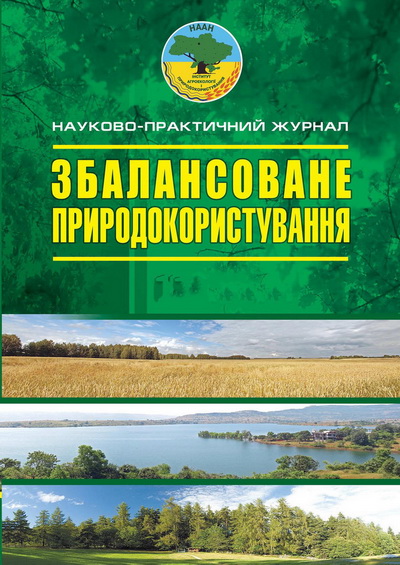PROBLEMS AND PROSPECTS OF THE DEVELOPMENT OF ORGANIC FARMING IN PRIPIAT POLESIA OF THE REPUBLIC OF BELARUS
DOI:
https://doi.org/10.33730/2310-4678.3.2018.190372Keywords:
organic farming, soil fertility, production, directions, developmentAbstract
The article is devoted to the study of problems and the rationale for the prospects for the development
of organic farming in the Pripyat Polesie of the Republic of Belarus The geographical location of
Pripyatsky Polesie, the availability of water resources and the state of soil fertility for the organization of
organic agriculture are the main prerequisites for efficient crop production. The use of fallow and restoration
of fertility of degraded soils in the transboundary region are the main tasks, the solution of which
will contribute to the improvement of socio-ecological-economic stability in the region. In the Republic of
Belarus, the use of the most suitable soils continues against the background of work on their ameliorative
improvement in the Polesia zone and the planting of less fertile agricultural lands along with measures
that increase their adaptive capacity. The goal of various economic processes in the cross-border region of
Ukraine and the Republic of Belarus in most cases is to improve the biological activity and soil fertility,
which will provide the population with ecologically clean food. An institutional system has been developed
to support the development of organic farming in the Republic of Belarus, which should include: creating
a regulatory framework, harmonizing regulatory documents with the requirements of trading partners
in various countries of the world, etc. The basic requirements for the organization of organic farming are
substantiated: organic farming should be based on the principles of the existence of natural systems and
cycles; organic farming management must be preventive, etc. The practical application of the developed
provisions is to develop recommendations for the harmonious development of a single natural complex —
Pripyat Polesie along the path of a «green» economy.
Issue
Section
License
- The authors reserve the right to authorship their work and pass the journal the right to publish this work under a Creative Commons Attribution License license, which allows other persons to freely distribute the published work with the obligatory The authors of the original work and the first publication of this magazine.
- The authors have the right to make independent additional agreements on the nonexclusive dissemination of the work in the form in which it was published by this magazine (for example, to post work in the company's electronic storage or to publish as a monograph) , subject to the first publication of the link to this journal.
- Journal policy allows and encourages the placement of authors on the Internet (for example, in the repositories of institutions or on personal websites) manuscript work as to the presentation of this manuscript to the editorial board and during its editorial processing, as it contributes to The productive scientific discussion and positively affects the efficiency and dynamics of citation published work (see The Effect of Open Access).


